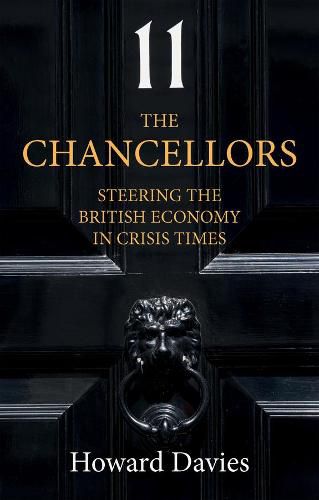Readings Newsletter
Become a Readings Member to make your shopping experience even easier.
Sign in or sign up for free!
You’re not far away from qualifying for FREE standard shipping within Australia
You’ve qualified for FREE standard shipping within Australia
The cart is loading…






When the Treasury lost control of interest rates to the Bank of England in 1997, its status looked under threat. However, it quickly reasserted its power by dominating policymaking across Whitehall and diminishing other ministries in the process. It also successfully fought off attempts by Prime Ministers, from Blair to Johnson, to cut it down to size.
In this fascinating insider account, based on in-depth interviews with the Chancellors and key senior officials, Howard Davies shows how the past twenty-five years have nonetheless been a roller-coaster ride for the Treasury. Heavily criticized for its response to the global financial crisis, and for the rigours of the austerity programme, it also ran into political controversy through its role in the Scottish referendum and the Brexit debate. The Treasury’s dire predictions of the impact of Brexit have not been borne out. Redemption of a kind, though a costly one, came from its muscular response to the COVID crisis.
Anyone with an interest in economic policymaking, in the UK and elsewhere, will find this a valuable and entertaining account.
$9.00 standard shipping within Australia
FREE standard shipping within Australia for orders over $100.00
Express & International shipping calculated at checkout
When the Treasury lost control of interest rates to the Bank of England in 1997, its status looked under threat. However, it quickly reasserted its power by dominating policymaking across Whitehall and diminishing other ministries in the process. It also successfully fought off attempts by Prime Ministers, from Blair to Johnson, to cut it down to size.
In this fascinating insider account, based on in-depth interviews with the Chancellors and key senior officials, Howard Davies shows how the past twenty-five years have nonetheless been a roller-coaster ride for the Treasury. Heavily criticized for its response to the global financial crisis, and for the rigours of the austerity programme, it also ran into political controversy through its role in the Scottish referendum and the Brexit debate. The Treasury’s dire predictions of the impact of Brexit have not been borne out. Redemption of a kind, though a costly one, came from its muscular response to the COVID crisis.
Anyone with an interest in economic policymaking, in the UK and elsewhere, will find this a valuable and entertaining account.